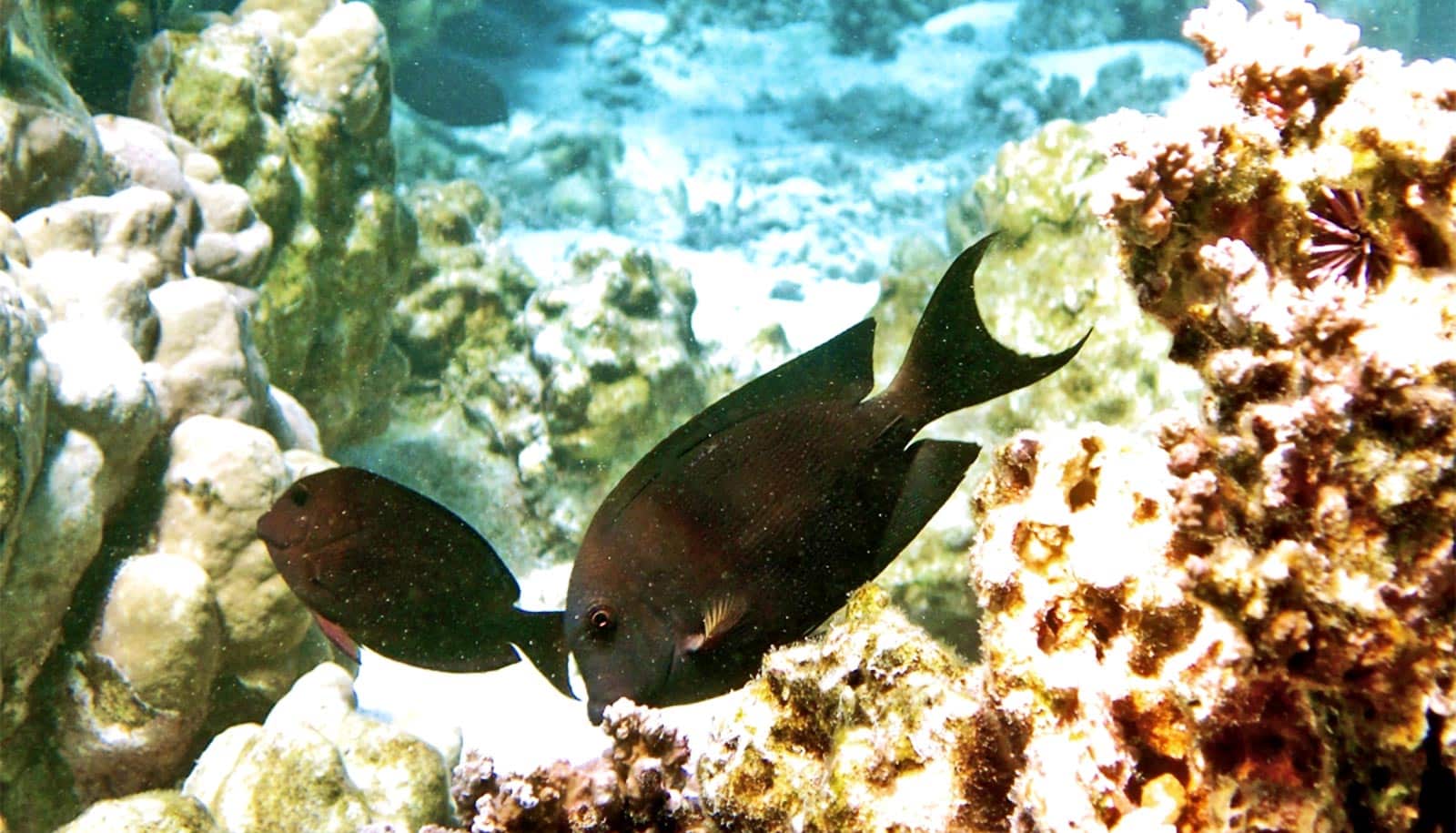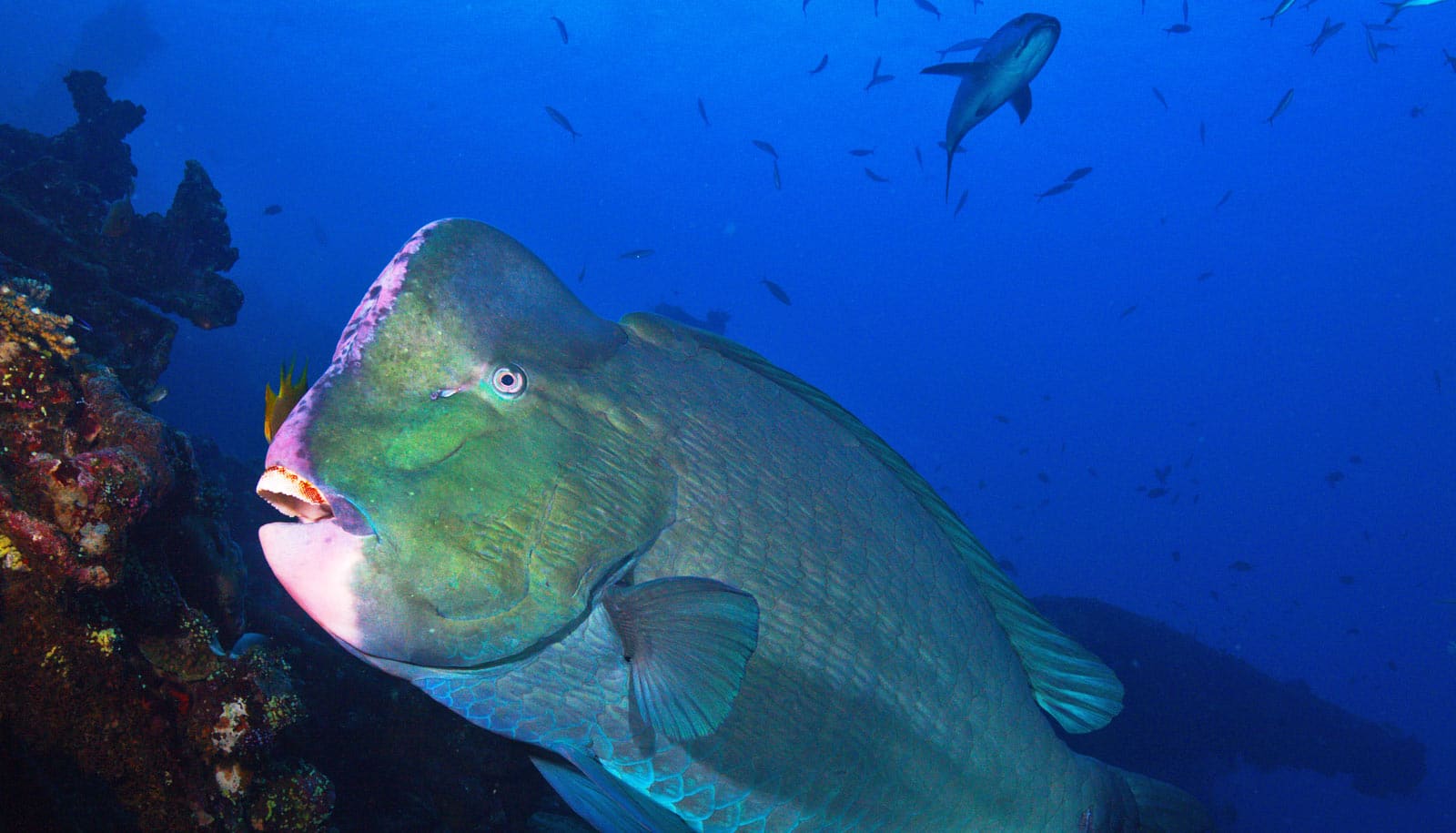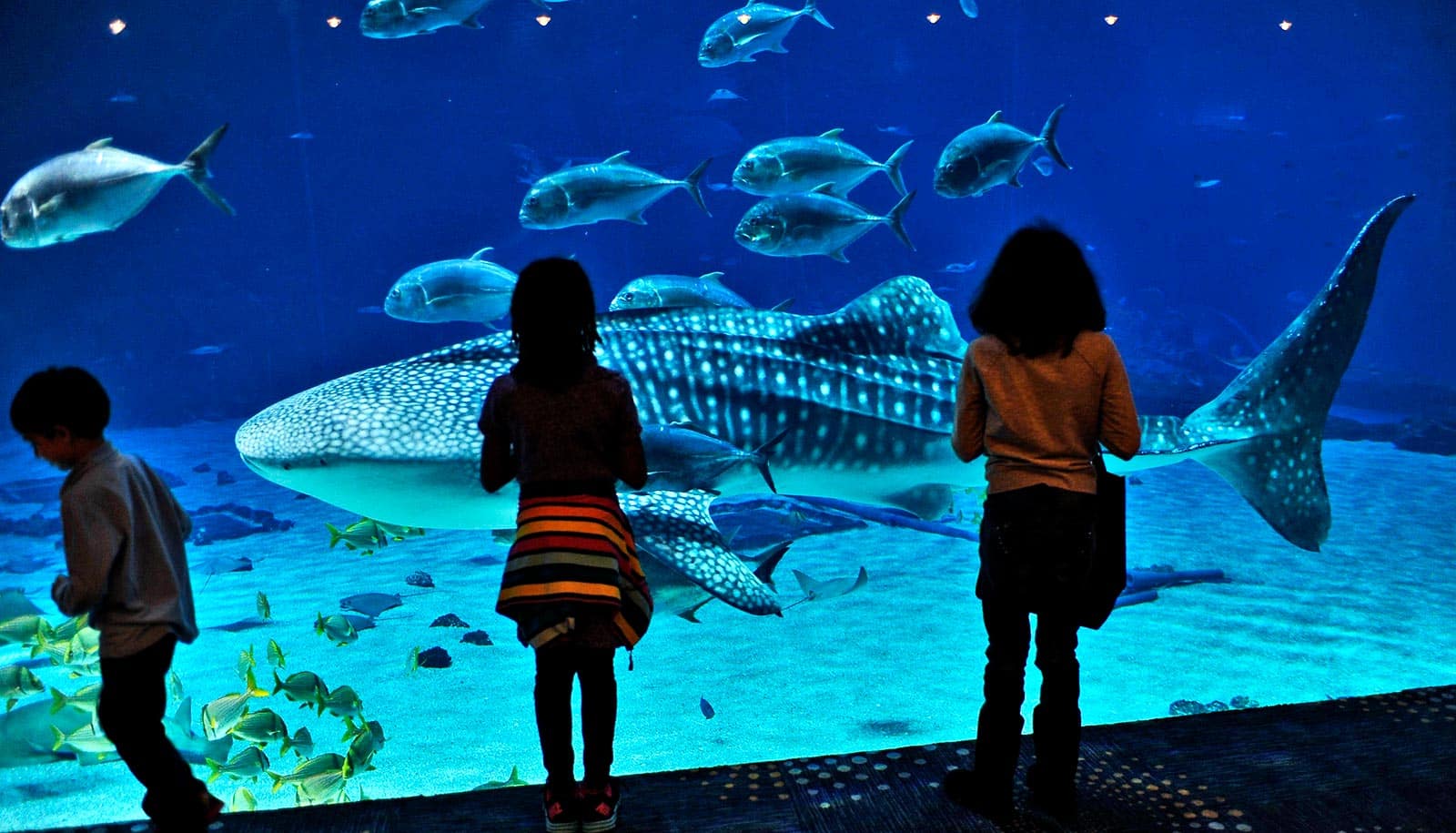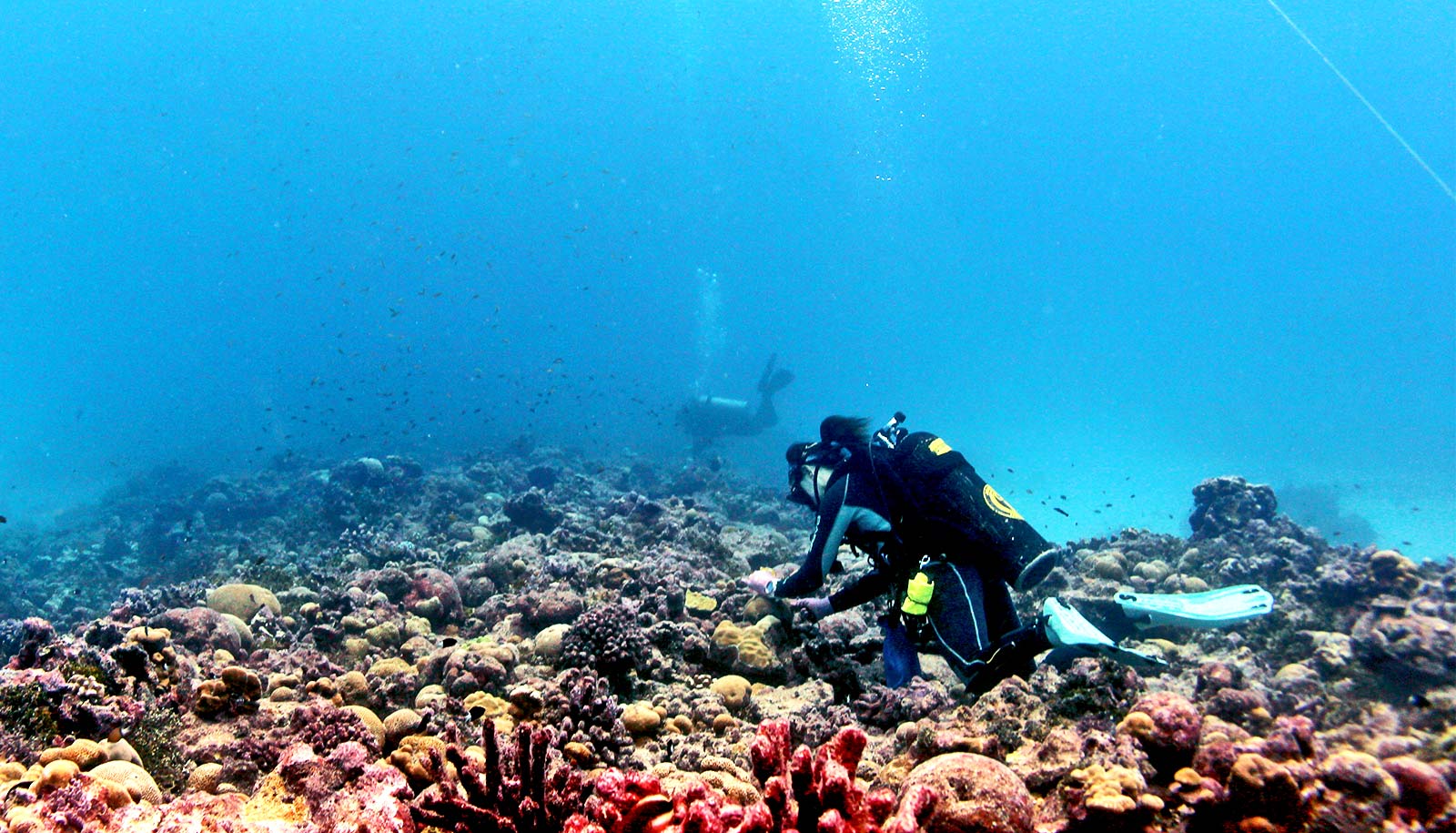Fish have pooped on coral since time immemorial. While it’s a normal part of the ecosystem, new research suggests that changing environmental conditions could throw the dynamic off kilter.
The new findings document how climate change can alter ecological relationships.
While conducting research in the lagoon on Mo’orea, French Polynesia, scientists noticed the fish droppings on the coral. They could easily have overlooked what is a routine occurrence on the reef, but were curious what effect this might have when combined with rising ocean temperatures.
“If corals are healthy and they’re not stressed out, then that poop is not a bad thing,” says Deron Burkepile, a professor in the ecology, evolution, and marine biology department at the University of California, Santa Barbara. It’s potentially even beneficial, providing important nutrients to the reef denizens.
“But when corals are stressed out, like during a marine heatwave,” he says, “this natural, relatively benign interaction becomes something pretty malignant.”
Warmer temps, more bacteria
The researchers knew that, in addition to nutrients, fish feces also contain potentially harmful bacteria. In fact, previous studies had shown a limited and temporary effect on the corals’ microbiomes. The scientists wondered whether changing environmental conditions could exacerbate this issue.
Leïla Ezzat, a postdoctoral researcher and lead author of the paper in Frontiers in Microbiology, and her colleagues collected individuals of the striated surgeonfish and fragments of lobe coral. They then took feces from the fish and placed it on coral fragments in four of the experiment’s eight tanks, leaving the coral in the other tanks as clean control subjects.
To study the effect of temperature, they raised half of the tanks in each group to 30 degrees Celsius (86 degrees Fahrenheit), while leaving the others at 26 degrees C (78.8 degrees F), the typical temperatures on the reef during that time of year. After two days the researchers removed the feces from the coral and took tissue samples. They repeated this sampling again after five days.
Regardless of the temperature, the researchers observed that the number of bacteria species increased on coral exposed to the fish droppings. That said, those in warmer water had more potentially pathogenic species.
Less energy for coral reef healing
Heat hampers corals’ ability to regulate their microbiomes, Burkepile explains. The fish feces aggravated this problem by adding new, possibly harmful, microbes to the corals’ systems.
In fact, Ezzat and her team noticed the coral had developed a small spot of bleached tissue around each area where a fish poop had been regardless of the temperature. When they looked at the microbiome of these bleached spots, they found that more feces was associated with more bacteria in these areas.
After removing the rest of the fish droppings 48 hours later, the team sought to determine whether temperature would affect the coral’s recovery. To this end, they tracked and compared the health of the coral fragments under the two temperature regimes.
“We observed that higher temperatures actually slow down coral tissue recovery, making the lesions from the feces slower to heal” Ezzat says.
As cold-blooded animals, corals’ metabolisms run faster and less efficiently in high temperatures. And since they’re not consuming significantly more food, they have less energy for other things like healing, Burkepile says.
The researchers are now interested in learning what potentially beneficial microbes the fish feces may spread from coral to coral. They also plan to investigate the different nutrients in fish feces, its possible importance for coral nutrition, as well as how it might help corals survive during stressful times like marine heatwaves.
Although the findings may seem small, they fit into a larger trend. “This is just one of the pervasive effects of global change,” Burkepile notes. “It takes these normal, natural interactions amongst organisms and it turns them into potentially harmful interactions.”
Source: UC Santa Barbara



